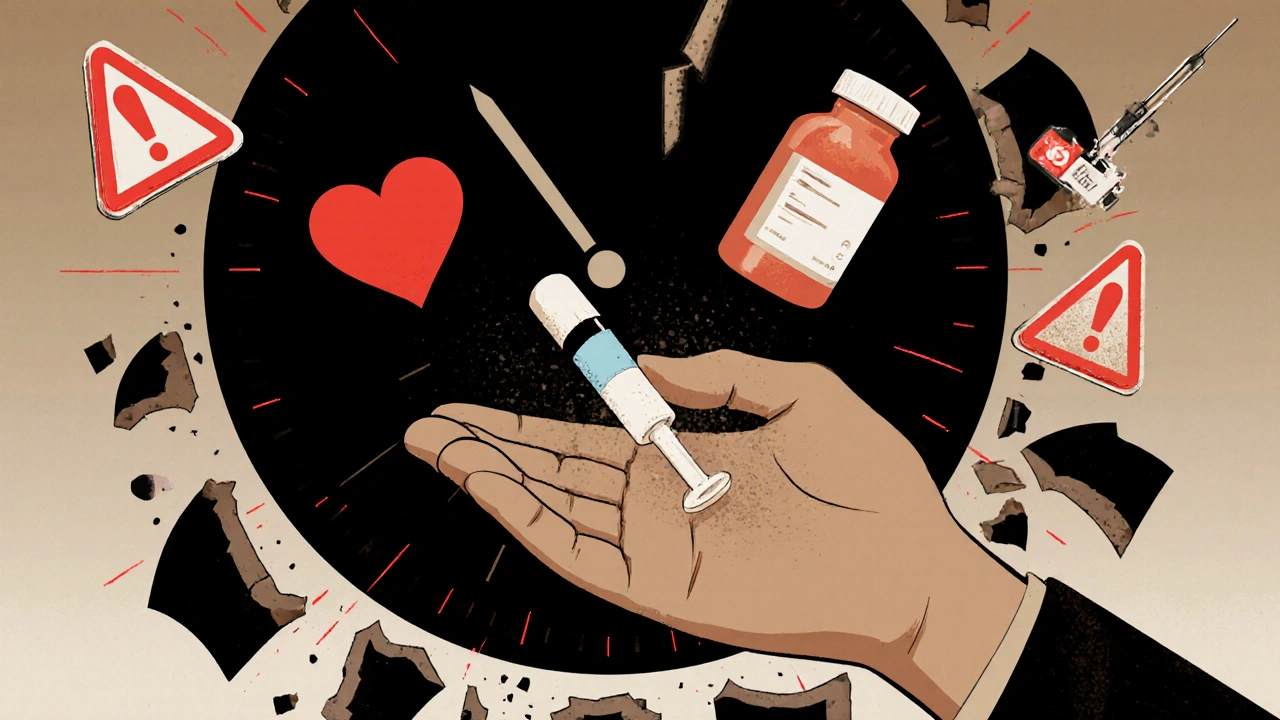When people don’t take their medicine as prescribed, it’s called drug noncompliance, the failure to follow a prescribed medication plan. Also known as medication nonadherence, it’s not just about forgetting pills—it’s about stopping because of side effects, cost, confusion, or feeling better too soon. This isn’t a rare mistake. Nearly half of people with chronic conditions like high blood pressure, diabetes, or depression don’t take their drugs correctly. And the results? Hospital stays, worsening disease, and even death.
Drug noncompliance isn’t a character flaw. It’s often a response to real problems. Take side effects, unpleasant or dangerous reactions to medication. Someone on sulfonylureas might skip doses because they get dizzy from low blood sugar. Someone on oral chemotherapy might stop because nausea leaves them too weak to cook dinner. Or consider treatment failure, when a drug stops working because it wasn’t taken as directed. A person on clozapine who quits smoking without telling their doctor can crash their drug levels—leading to a psychotic break. These aren’t hypotheticals. They’re daily realities tracked in pharmacovigilance systems and reported by patients who feel unheard.
It’s not just about the medicine. It’s about the system. Insurance formularies push generics, but if the copay is still too high, people skip pills. Prescription labels are confusing—"twice daily" doesn’t mean "with breakfast and dinner" for everyone. And mental health meds? Many take five or more at once, with no one explaining how they interact. That’s why medication adherence, the consistent use of drugs as prescribed is more than a buzzword—it’s a survival skill. But no one teaches it. No one asks. And too often, doctors assume patients are following instructions when they’re not.
The posts below don’t just list problems—they show you the real reasons behind missed doses, the hidden dangers of stopping early, and the simple fixes that actually work. You’ll find guides on how to read your label correctly, how smoking changes your clozapine levels, why antidepressants cause withdrawal if you quit cold turkey, and how to avoid dangerous interactions when you’re on multiple meds. This isn’t about blame. It’s about clarity. If you’ve ever wondered why your medicine isn’t working, or why your doctor keeps asking if you’re taking it, these articles have the answers you’ve been looking for.
Posted by
Paul Fletcher
9 Comments

Skipping your prescribed medication can lead to hospitalization, drug resistance, and even death. Learn the real consequences of nonadherence and what you can do to stay on track.
read more